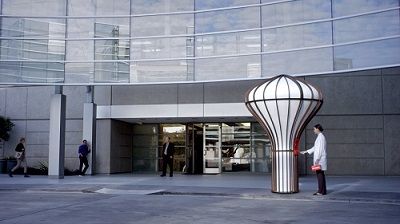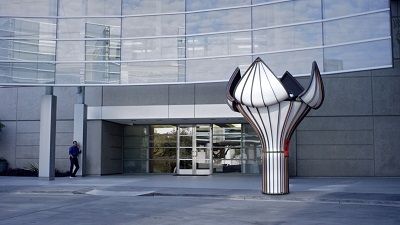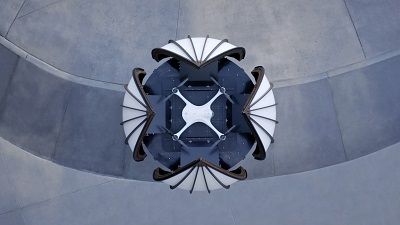Drone delivery of pharmaceuticals takes flight in Florida
UPS and CVS Pharmacy collaborate for direct-to-patient delivery; but check out Matternet, UPS’ drone partner
Drone delivery—in a healthcare context—is taking another step forward, as UPS Flight Forward joins with CVS to deliver prescriptions to The Villages, a Florida retirement community of 135,000 residents. Avoiding the need to have elderly consumers trek to the local pharmacy, in this pandemic era, is an obvious benefit. “UPS is committed to playing its part in fighting the spread of Coronavirus, and this is another way we can support our healthcare customers and individuals with innovative solutions,” said Scott Price, UPS chief strategy and transformation officer.
The service will begin in early May. The first flights will be less than one half mile and be delivered to a location near the retirement community, says UPS. Initially, a ground vehicle will complete the delivery to the resident’s door.
UPS Fast Forward, formed last year, is meant to be the company’s “revenue generating” drone delivery business—several steps up from the various tests or demonstration programs that have occurred in recent years. An earlier example is the UPS service at WakeMed, a North Carolina health system, where UPS drones are transporting lab specimens among buildings at WakeMed’s Raleigh campus. UPS says that more than 3,700 flights have been completed to date. A similar program has now started up at the University of California San Diego Health System.
UPS Flight Forward’s technology partner in all three of these efforts is Matternet, a Swiss drone-development company that is performing hospital-system deliveries in that country. Last month, Matternet unveiled an innovation that is both technologically and aesthetically elegant: the Matternet Station, an “aviation grade” launch and delivery platform. Operating semi-autonomously (with remote human operators to monitor) the station is intended to receive lab or drug shipments at one location, then launch a drone to convey them to another. The station has multiple security controls, battery recharge for the drones and other features to streamline transport. When not in flight, the drone rests inside the 3-meter-tall structure (which serves to keep drones well above nearby people).

“Our vision is to connect every healthcare facility in every metropolitan area with the fastest transportation method available today,” said Andreas Raptopoulos, CEO of Matternet. “We are building the technology platform for extremely fast, point-to-point, urban medical delivery, enabling hospital systems to shrink patient waiting times and save millions of dollars per year through the centralization of laboratories and medical inventory.” The company is working with the FAA to Type Certify its Matternet M2 Drone and Cloud Platform.
There are comparable drone-delivery efforts going on among Wing, an Alphabet company; FedEx and others; another company, Zipline, is working in Africa for delivery of time- and temperature-sensitive therapies.
Historically, how a prescription got from the pharmacy to the patient was a minor concern of the pharma industry. But that is changing as the emphasis on direct-to-patient services grows, and as the pharma industry attempts to go farther along the patient journey with its offerings. Ultimately, drone delivery may make a difference.

Top: the Matternet station at eye level; middle: the station opening up for a launch; bottom: top view with drone in place. credit: Matternet
